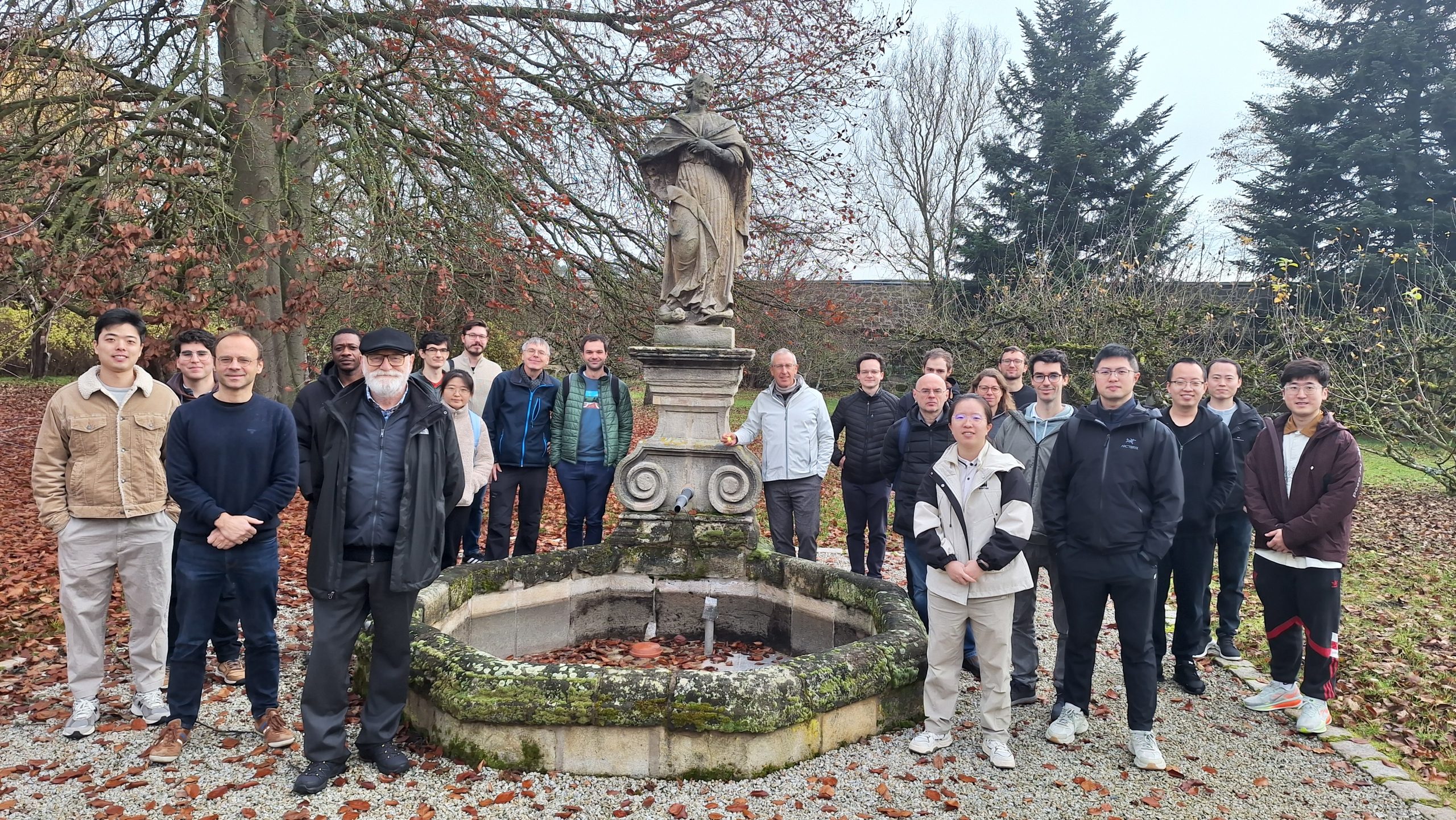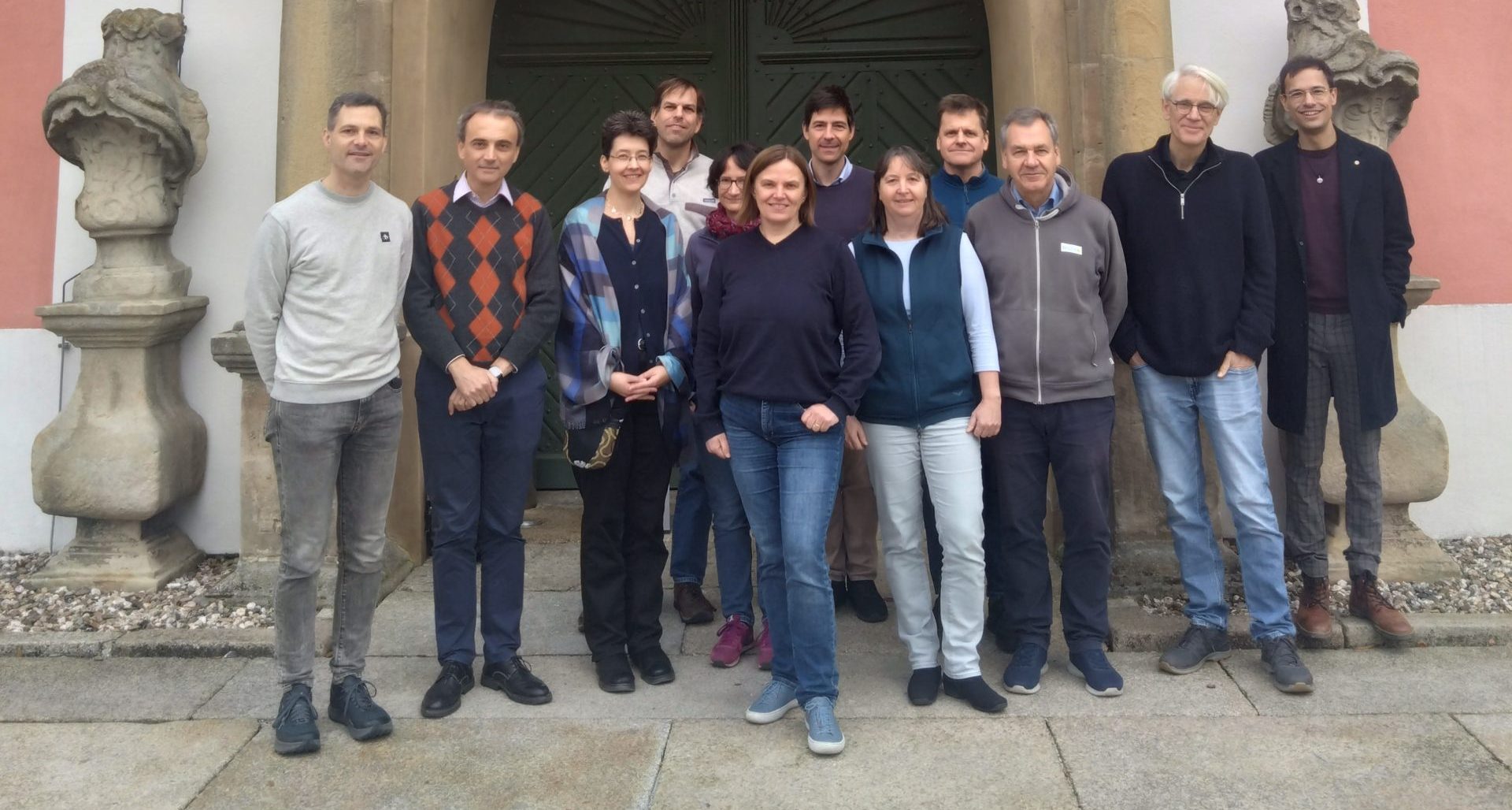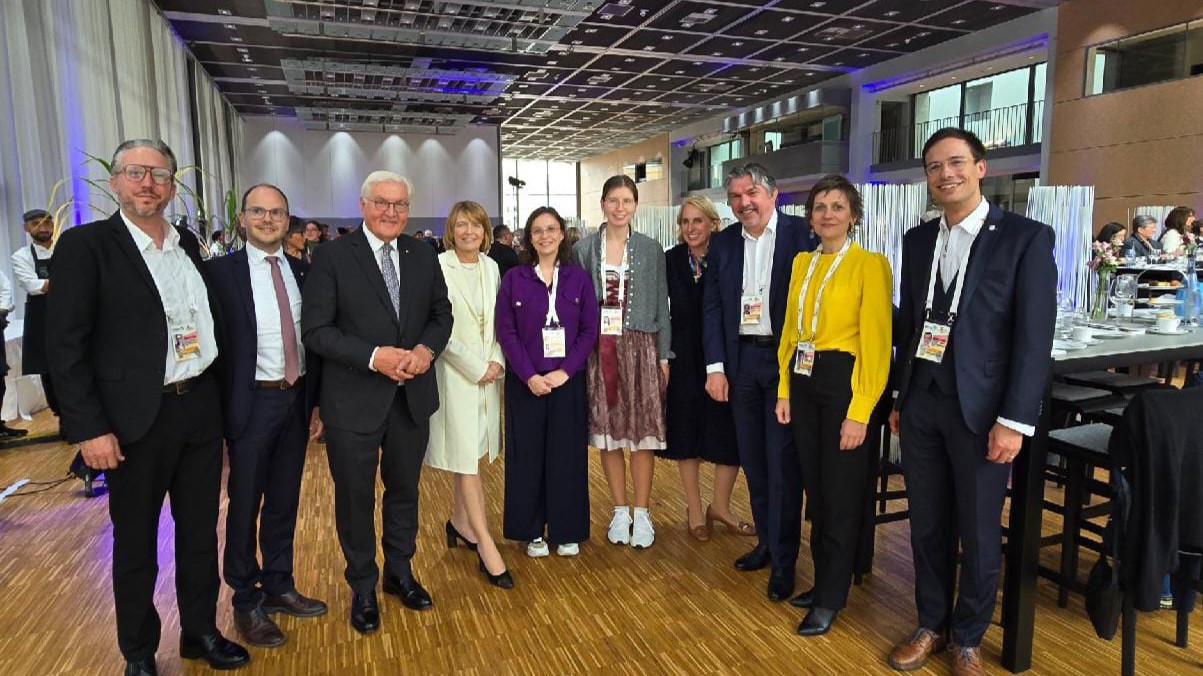From November 11–16, 2025, researchers, students, and industry partners gathered at Kloster Speinshart for a week-long workshop focused on the exchange of ideas at the intersection of mathematics, control theory, machine learning, and industrial innovation. Set within the calm atmosphere of the historic monastery, the event blended academic depth with opportunities for informal dialogue, creating a setting that encouraged both concentration and creativity. We were very pleased to welcome guests from Poland, Italy, China, Spain, Germany, Brazil and Burkina Faso!
The workshop began on Tuesday with a bus journey from Erlangen, bringing participants into the monastic environment where the opening lecture was delivered by Enrique Zuazua. His talk, titled “The Landscape of Modern Mathematics: An Overview,” offered a sweeping introduction to contemporary mathematical developments, highlighting the interplay between classical theory, computational methods, and data-driven approaches. The evening closed with a networking dinner that allowed participants to meet, exchange first impressions, and form initial connections.
Wednesday opened with a technical lecture by Lars Grüne from the University of Bayreuth on “Dissipativity in Optimal Control – Turnpikes, Predictive Control, and Uncertainty.” He discussed the central role of dissipativity in shaping the long-term behavior of control systems, explained the turnpike phenomenon, and explored how predictive control strategies adapt under uncertainty. The remainder of the day followed the rhythm that soon became characteristic of the workshop: morning discussions and project work, lunch, an extended siesta, an afternoon of further collaborative sessions, and a communal dinner. This structure supported both productive research and the reflective pacing encouraged by the monastery’s environment.
Thursday brought a change of perspective with a guided tour through the monastery led by Adrian Roßner. Participants learned about the building’s architectural history, artistic features, and cultural significance, enriching the scientific program by connecting it to the location’s centuries-old heritage. The rest of the day again provided opportunities for discussion, project advancement, and shared meals, deepening both academic and personal connections among the attendees.
On Friday, the focus shifted from theory to applied innovation with an industry lecture by Dominik Penk, Applied Research Engineer at Schaeffler Technologies. His talk, “How Machine Learning Is Vital for the Bavarian Industry to Remain Competitive,” demonstrated how machine learning enhances industrial processes through predictive maintenance, intelligent manufacturing, and adaptive optimization. By highlighting concrete examples from Schaeffler’s applied research, he underscored the increasing importance of ML-driven approaches in ensuring the competitiveness of Bavaria’s industrial landscape. The day continued with the familiar structure of discussions, siesta, project time, and dinner.
Saturday provided extended space for concentrated project work in the morning, followed by lunch and an optional hike around the monastery in the afternoon. Participants could choose between continuing their scientific work or joining a joint outdoor excursion, which offered a refreshing balance of nature, architecture, and informal conversation. The day concluded with further project discussions and a final shared dinner, after which the evening was open for participant-organized social activities.
The workshop drew to a close on Sunday morning with a bus ride back to Erlangen, offering time for reflection on the ideas developed and the relationships formed throughout the week. The Speinshart Workshop 2025 proved to be far more than a sequence of lectures; it was an immersive experience that fused academic exploration with cultural context and community building. Surrounded by the monastery’s calm and contemplative atmosphere, participants found the space to engage in deep thought, exchange perspectives, and strengthen collaborations that would continue well beyond the event.





Join the conversation